The Department of Orthopaedic Surgery and Sports Medicine offers the following clerkships for interested medical students.
Call Expectations for Clerkships in Seattle: All medical students applying into Orthopaedic Surgery are expected to take overnight and weekend call. Students not applying into Orthopaedics who rotate between the months of May and October will also be scheduled to take weekend and overnight call.
Please contact our Medical Education Program Manager, Jessica Jin at orthomsp@uw.edu or 206-744-4927 with any questions.
Preceptership in Orthopaedics (ORTHP 675)
Course Number: ORTHP 675 Credits: 4 Offered: 2 weeks full-time Grading Notes: Pass/Fail only EValue Status: Availability is set up after permission is granted; will not necessarily appear in EValue Prerequisite: None Compliance Notes: Varies based on site; Clerkship requests less than 6 weeks before the start of the rotation will not be accepted.
Contact the clerkship coordinator for more information.Clerkship Coordinator: Jessica Jin, 206-744-4927, orthomsp@uw.edu Clerkship site(s): Seattle, WA: various community practices Permission Required: Yes Surgical Selective: Yes The student will spend full time with the preceptor during all his/her working day in order to gain a better understanding of the diagnosis and management of problems of the musculoskeletal system as seen in a private orthopedic practice, both in the clinic and operating room. If the student has to drop the clerkship less than 4 weeks before the start of the rotation, it is the student’s responsibility to find another medical student to take his or her place.
Pediatric Orthopaedics (ORTHP 676)
Course Number: ORTHP 676 Credits: 8 Offered: 4 weeks full-time Grading Notes: High Pass/Honors eligible EValue Status: Availability pre-entered; searchable in EValue Prerequisite: Completion of required third year Surgery clerkship Clerkship Coordinator: Jessica Jin, 206-744-4927, orthomsp@uw.edu Clerkship site(s): Seattle, WA: Seattle Children's Hospital Permission Required: No Surgical Selective: Yes Goals and Objectives
During the 4 week clerkship, students should be able to identify and describe the most common topics:
- Normal musculoskeletal variations of childhood, including:
- developmental milestones
- torsion, i.e. in-/out-toeing
- flexible flatfoot
- bow-legs and knock-knees
- General musculoskeletal diseases of childhood, including:
- bone and joint infections
- hip diseases, such as developmental dysplasia, slipped capital femoral epiphysis
- spine deformity, such as scoliosis, back pain
- foot deformity, such as clubfoot
- limb deficiency and limb length inequality
- sports injury in the immature athlete
- Musculoskeletal trauma, including:
- fractures and dislocations as treated in the Emergency Department, injuries managed in the outpatient setting
- casting and splinting
At the completion of the clerkship experience the student should be able to:
- Make a reasonable and appropriate differential diagnosis.
- Know the pertinent diagnostic categories and the likelihood of each.
- Students should be able to demonstrate the ability to perform a focused history and physical examination emphasizing evaluation of the spine and extremities in the pediatric and adolescent patient.
- Students should be able to choose the appropriate imaging studies for such conditions as hip dysplasia, Legg-Calve-Perthes disease and slipped capital femoral epiphysis, meniscus tears and anterior cruciate ligament disruptions and scoliosis.
- Provide the standard of care in the community.
- Know what you’re comfortable treating, and what should be referred.
- Identify conditions that warrant referral to the relevant specialty.
- These conditions include displaced limb fractures, especially those about the elbow, hip dysplasia, progressive scoliosis, knee cartilage and ligament injuries and bone and joint infections.
- Ask for assistance when it is necessary and warranted.
Faculty
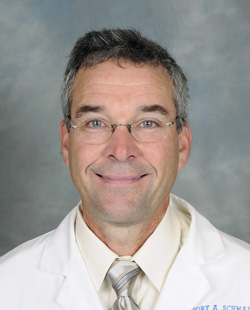
Gregory A. Schmale, M.D.
Associate Professor
Acting Chief Medical Director, Division of Pediatric Orthopaedic Surgery and Sports Medicine, Seattle Children's Hospital
Chief, Orthopaedic Medical Education, Seattle Children's Hospital
Program Director, Orthopaedic Residency, Seattle Children's Hospital
Clinic Chief, Sports, Seattle Children's Hospital
Specialties:
Pediatrics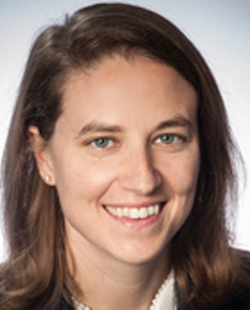
Jennifer M. Bauer, M.D.
Assistant Professor
Specialties:
Pediatrics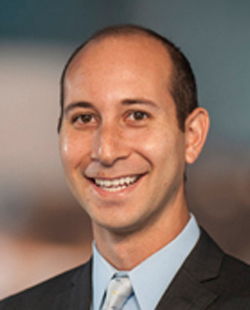
Todd Blumberg, M.D.
Assistant Professor
Specialties:
Pediatrics
Antoinette W. Lindberg, M.D.
Assistant Professor
Specialties:
Oncology
Pediatrics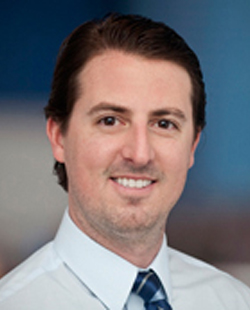
Michael Saper, D.O.
Assistant Professor
Specialties:
Pediatrics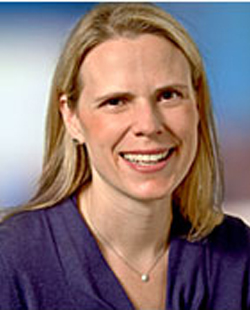
Suzanne E. Steinman, M.D.
Clinical Associate Professor
Specialties:
PediatricsRotation Locations
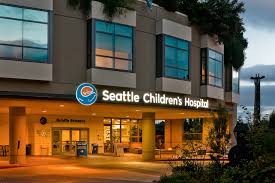
Seattle Children's Hospital
- Normal musculoskeletal variations of childhood, including:
Musculoskeletal Trauma (ORTHP 677)
Course Number: ORTHP 677 Credits: 8 Offered: 4 weeks full-time Grading Notes: High Pass/Honors eligible EValue Status: Availability pre-entered; searchable in EValue Prerequisite: Completion of third year required Surgery clerkship Clerkship Coordinator: Jessica Jin, 206-744-4927, orthomsp@uw.edu Clerkship site(s): Seattle, WA: Harborview Medical Center Permission Required: No Surgical Selective: Yes General Orthopaedics, weighted toward musculoskeletal trauma.
Goals and Objectives:
- Musculoskeletal knowledge base including:
- the approach to diagnosis of musculoskeletal injuries
- the treatment of simple musculoskeletal injuries
- understanding the difference between isolated injuries and polytrauma
- the biomechanics of tissue failure
- basic principles of tissue healing
- Musculoskeletal traumatic conditions including:
- fractures
- dislocations
- soft tissue injuries such as sprains and ligament disruptions
- conditions that affect mobility such as femoral neck fracture or spinal cord injury
- During the 4 week clerkship, students should be able to identify and describe the most common surgical problems unique to orthopaedic trauma. These include fractures and dislocations of the upper and lower limbs, soft tissue injuries to the upper and lower limbs.
- Understand the impact of trauma on physical and social function and the impact on family and society.
- The student should be able to demonstrate the ability to perform a focused history and physical examination emphasizing neuro muscular function, sensation and motor control.
- Diagnosis and management of musculoskeletal injuries.
- In the operating room and/or clinic, students will be able to understand the anatomy, be able to interpret basic imaging studies of fractures and dislocations.
Faculty
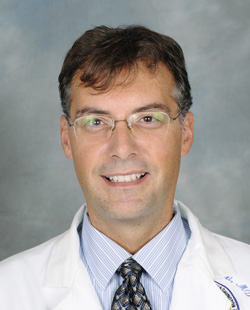
David P. Barei, M.D.
Professor
Program Director, Traumatology Fellowship
Specialties:
Fractures and Trauma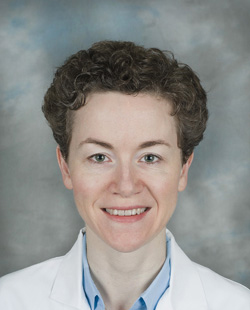
Daphne M. Beingessner, M.D.
Professor
Vice Chair for Quality Improvement
Specialties: Fractures and Trauma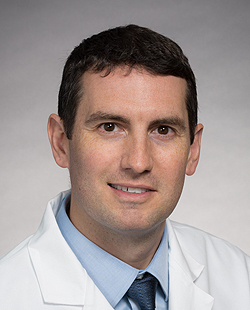
Conor P. Kleweno, M.D.
Associate Professor
Specialties:
Fractures and Trauma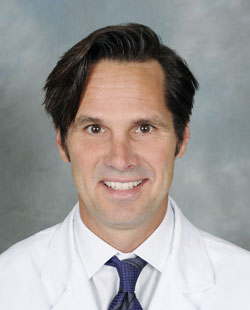
Sean E. Nork, M.D.
Professor
Trauma Section Chief
Specialties:
Fractures and Trauma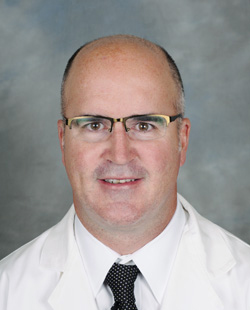
Robert P. Dunbar, Jr., M.D.
Associate Professor
Specialties:
Fractures and Trauma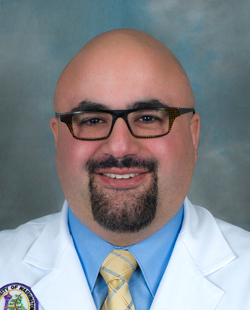
Reza Firoozabadi, MD, MA
Associate Professor
Director of Orthopaedic Trauma Research
Specialties:
Fractures and Trauma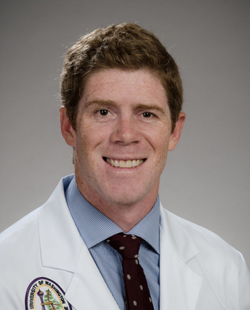
Michael Githens, M.S, M.D.
Assistant Professor
Specialties:
Fractures and Trauma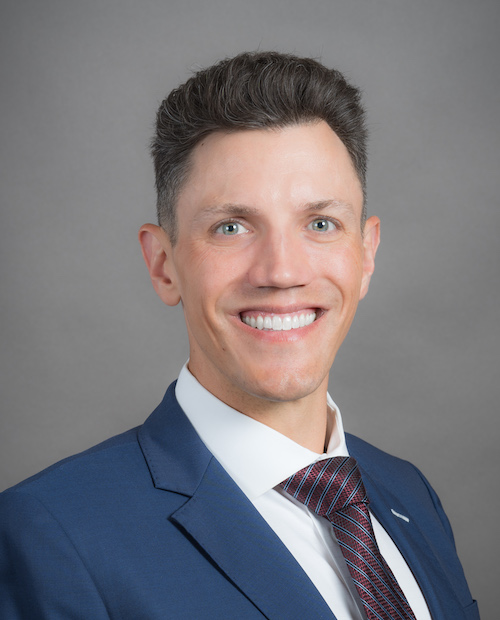
Zachary Rockov, M.D.
Assistant Professor
Specialties:
Fractures and Trauma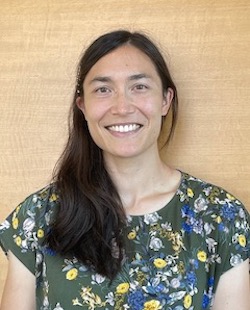
Erika Roddy M.D.
Assistant Professor
Specialties:
Fractures and TraumaRotation Locations
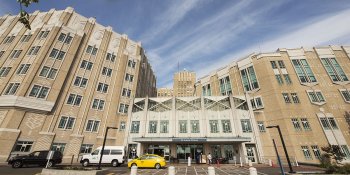
Orthopaedic Trauma Surgery Clinic at Harborview
Main Hospital, West Clinic , 325 9th Ave., 1st Floor, Seattle, WA 98104- Musculoskeletal knowledge base including:
Musculoskeletal Oncology (ORTHP 678)
Course Number: ORTHP 678 Credits: 8 Offered: 4 weeks full-time Grading Notes: High Pass/Honors eligible EValue Status: Availability pre-entered; searchable in EValue Prerequisite: Completion of required third year Surgery clerkship Clerkship Coordinator: Jessica Jin, 206-744-4927, orthomsp@uw.edu Clerkship site(s): Seattle, WA: UW Medical Center/Fred Hutch Cancer Center/Seattle Children's Hospital Permission Required: No Surgical Selective: Yes The oncology rotation for medical students provides a basic understanding of the incidence of sarcomas and metastatic adenocarcinomas in adults and children. The general principles of oncology staging will be taught in addition to the fundamentals for imaging for staging and treatment parameters.
Goals and Objectives:
Students are expected to learn the influence of both primary sarcomas of bone and soft tissue in addition to the incidence of Metastatic disease involving the skeleton in adults and children. The requirements for diagnosis of each sarcoma subtype and the principles for staging and evaluation are all expected goals. Parameters and complications of treatment will also be reviewed and discussed with the students.Faculty
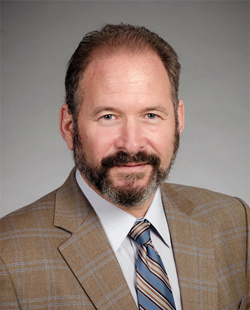
Howard Chansky, M.D.
Professor and Chair
Specialties: Arthritis
Hip and Knee
Oncology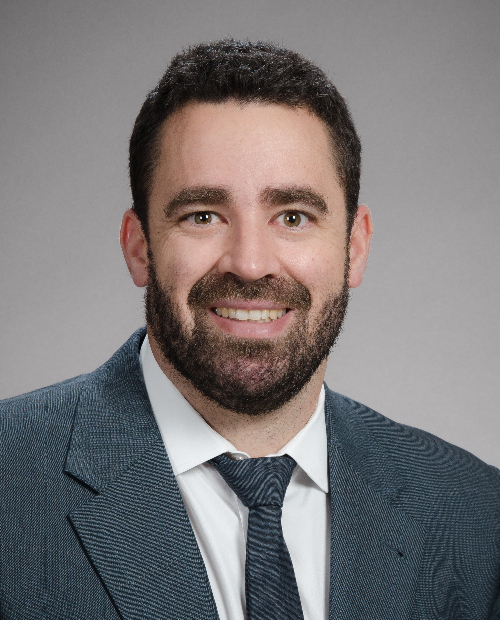
Jesse L. Roberts, M.D.
Assistant Professor
Specialties:
Oncology
Antoinette W. Lindberg, M.D.
Assistant Professor
Specialties:
Oncology
PediatricsRotation Locations
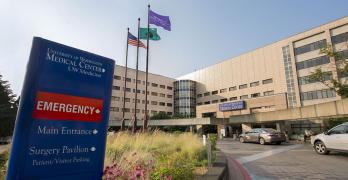
UW Medical Center
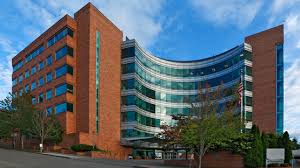
Fred Hutch Cancer Center

Seattle Children's Hospital
General Orthopaedic Clerkship (ORTHP 680)
Course Number: ORTHP 680 Credits: 8 Offered: 4 weeks full-time Grading Notes: High Pass/Honors eligible EValue Status: Availability pre-entered; searchable in EValue Prerequisite: Completion of third year required Surgery clerkship Compliance Notes: Requires extensive credentialing paperwork submitted at least 12 weeks prior to the rotation start date. Real ID or passport will be required. Clerkship Coordinator: Jessica Jin, 206-744-4927, orthomsp@uw.edu Clerkship site(s): Seattle, WA: VA Puget Sound Medical Center Permission Required: No Surgical Selective: Yes Objectives:
- Medical care of the orthopedic patient:
- obtain necessary but not excessive preoperative studies according to published guideline
- obtain appropriate consultations
- triage patients who should be admitted to a medical service or intensive care unit
- perioperative care and discharge of orthopedic patients.
- Evaluation of patients in the emergency department
- Outpatient orthopedics:
- basic exam for each joint and spine
- indications for appropriate radiographic and laboratory studies
- appropriate period of follow-up, when to discharge patient from care
- low back pain
- when to work-up
- imaging – what studies and when to get them
- nonoperative treatment
- osteoarthritis – primary and secondary, shoulder, knee, and hip
- risk factors, history and physical
- nonoperative management – literature
- Manual and other basic skills:
- suturing
- dressings/casts
- patient positioning, prepping and draping
Faculty
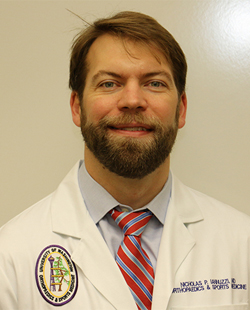
Nicholas Iannuzzi, M.D.
Assistant Professor
Chief, Orthopaedic Surgery, Puget Sound VA
Specialties:
Hand and Upper Extremity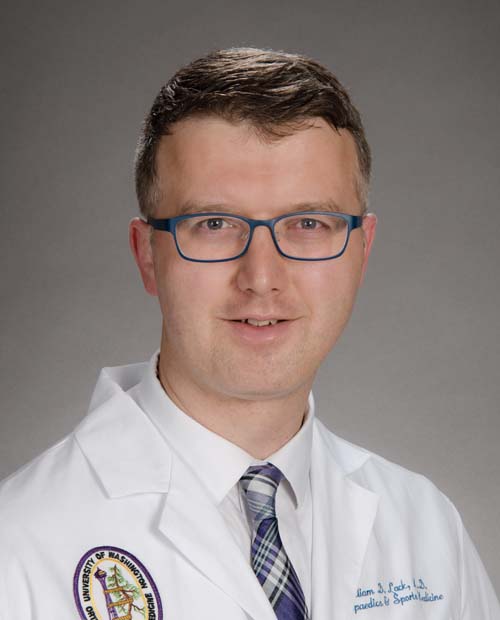
William D. Lack, M.D.
Assistant Professor
Specialties:
Fractures and Trauma
Hip and Knee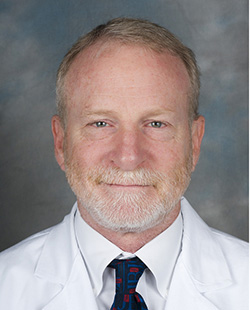
Bruce J. Sangeorzan, M.D.
Professor
Director, RR&D Center for Excellence in Limb Loss Prevention and Prosthetic Engineering, Veterans Affairs
Specialties: Foot and Ankle
Howard Chansky, M.D.
Professor and Chair
Specialties: Arthritis
Hip and Knee
Oncology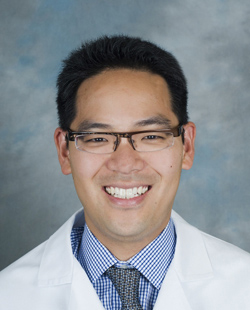
Albert O. Gee, MD
Associate Professor
Chief, Orthopaedic Surgery & Sports Medicine, University of Washington Medical Center
Team Physician, Husky Athletics
Specialties: Hip and Knee
Shoulder and Elbow
Sports MedicineRotation Location
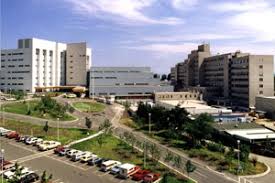
Seattle VA Medical Center
1660 South Columbian Way, Seattle, WA 98108- Medical care of the orthopedic patient:
Course Number: ORTHP 681 - Seattle, WA Credits: 8 Offered: 4 weeks full-time Grading Notes: High Pass/Honors eligible EValue Status: Most availability pre-entered; searchable in EValue Prerequisite: Completion of required third year Surgery clerkship Clerkship Coordinator: Jessica Jin, 206-744-4927, orthomsp@uw.edu Clerkship site(s): Seattle, WA: Sports Medicine Center at Husky Stadium, UWMC Permission Required: No Surgical Selective: Yes Students have “customized” experiences specific to their learning needs.
Goals and Objectives:
- Perform and present a history and directed physical exam of patients presenting with sports-related musculoskeletal complaints.
- Formulate a meaningful differential diagnosis of patients’ complaints, considering non-orthopaedic conditions as well as musculoskeletal conditions.
- Become familiar with basic orthopaedic diagnostic and treatment strategies.
- Become familiar with operative and non-operative treatment of common sports injuries.
- Learn and understand principles of sports rehabilitation.
- Understand unique aspects of orthopaedic surgical procedures, including meticulous sterile technique.
Faculty
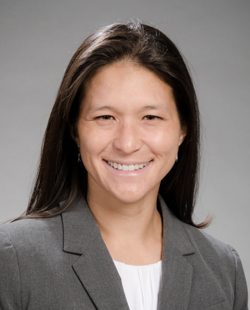
Mia S. Hagen, M.D.
Assistant Professor
Stadium Clinic Surgical Director
Specialties:
Sports Medicine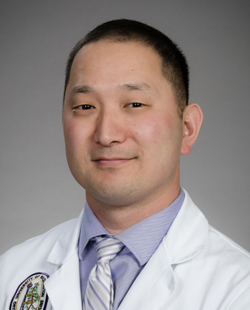
Christopher Y. Kweon, M.D.
Assistant Professor
Orthopaedic Surgery Residency Program Director
Team Physician, University of Washington Huskies
Specialties:
Sports Medicine
Albert O. Gee, MD
Associate Professor
Chief, Orthopaedic Surgery & Sports Medicine, University of Washington Medical Center
Team Physician, Husky Athletics
Specialties: Hip and Knee
Shoulder and Elbow
Sports Medicine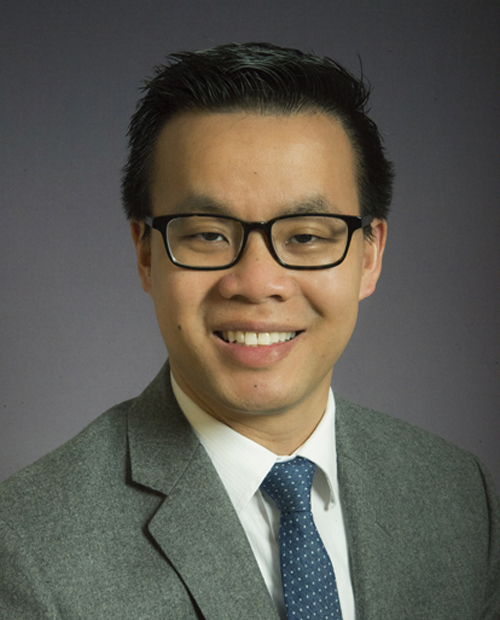
Kenneth Chin, M.D.
Clinical Assistant Professor
Specialties:
Foot and Ankle
Sports MedicineRotation Locations
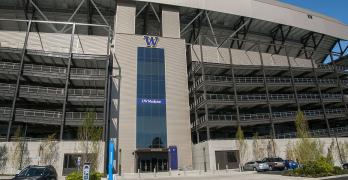
Sports Medicine Center at Husky Stadium
3800 Montlake Blvd. NE, Seattle, WA 98195Disorders of the Spine (ORTHP 684)
Course Number: ORTHP 684 Credits: 8 Offered: 4 weeks full-time Grading Notes: High Pass/Honors eligible EValue Status: Availability pre-entered; searchable in EValue Prerequisite: Completion of required third year Surgery clerkship Clerkship Coordinator: Jessica Jin, 206-744-4927, orthomsp@uw.edu Clerkship site(s): Seattle, WA: Harborview Medical Center Permission Required: No Surgical Selective: Yes Goals and Objectives:
- Initial evaluation of the spine:
- understand and be able to perform a complete physical examination of the spine
- special diagnostic tests for the spine
- Disorders of the spine:
- understand the differences between surgical and nonsurgical spine disorders
- understand what disorders constitute a surgical emergency
- understand the complete spectrum of nonsurgical management of spine disorder
- understand surgical indications
- understand the relative contraindications for spine surgery
- understand the risks of spine surgery
- understand the postoperative care and rehabilitation of spine surgery patients
At the end of the clerkship, the student should be able to:
- Perform a thorough history and physical examination of a patient presenting with a spine abnormality.
- Understand the appropriate diagnostic tests based on a differential diagnosis established after a history and physical examination.
- Have a basic understanding of the type of surgery necessary for differing types of spine disorders.
- Understand what types of problems are appropriate for primary care management and what spine problems require referral to a spine surgeon.
Faculty
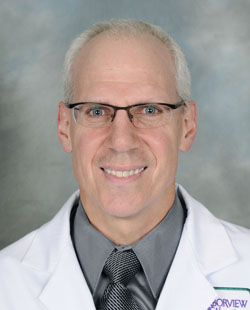
Carlo Bellabarba, M.D.
Professor
Chief of Service, Orthopaedics, Harborview Medical Center
Director, Spine Service
Joint Professor, Department of Neurological Surgery
Specialties:
Fractures and Trauma
Spine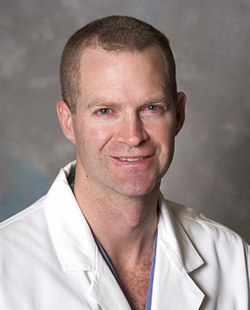
Richard J. Bransford, M.D.
Professor
Director, UW Orthopaedics Spine Fellowship Program
Director of Orthopaedics Spine Quality Improvement
Specialties:
Spine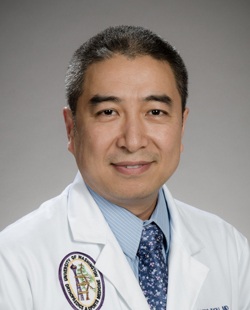
Haitao Zhou, M.D.
Assistant Professor
Specialties:
Spine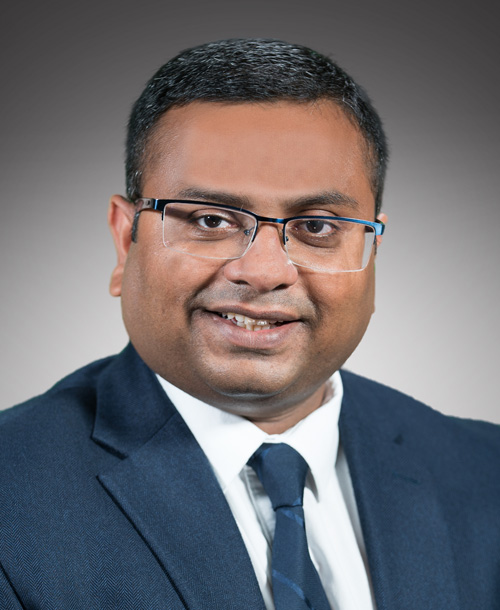
Viral R. Patel, M.D.
Acting Instructor
Specialties:
Spine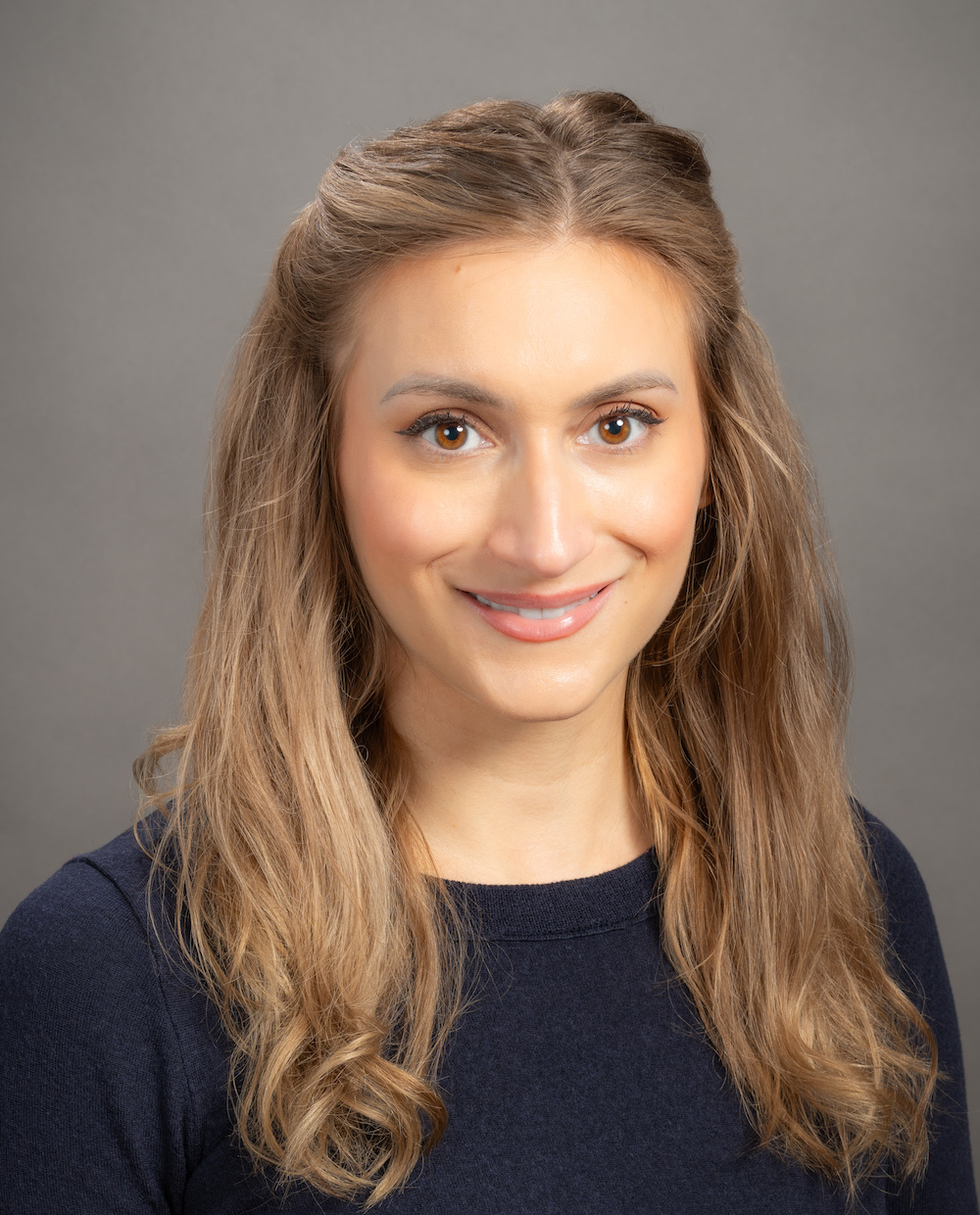
Karina Katchko, M.D.
Assistant Professor
Specialties:
SpineRotation Locations
 Spine Center at Harborview
Spine Center at Harborview
Ninth & Jefferson Building, 908 Jefferson St., Seattle, WA 98104- Initial evaluation of the spine:
Adult Reconstruction (ORTHP 685)
Course Number: ORTHP 685 Credits: 8 Offered: 4 weeks full-time Grading Notes: High Pass/Honors eligible EValue Status: Availability pre-entered; searchable in EValue Prerequisite: Completion of required third year Surgery clerkship Clerkship Coordinator: Jessica Jin, 206-744-4927, orthomsp@uw.edu Clerkship site(s): Seattle, WA: Northwest Hospital Permission Required: No Surgical Selective: Yes Goals:
- Physical Examination of the Hip:
- understand and be able to perform a complete physical examination of the hip
- be familiar with special diagnostic tests for the hip
- Physical Examiniation of the Knee:
- understand and be able to perform a complete physical examination of the knee in older adults
- be familar with special diagnostic tests for the knee in older adults
- Arthritis of the Hip and Knee:
- understand the basics of hip and knee arthritis
- understand the basic of non-surgical treatment of hip and knee arthritis
- be familiar with the role of surgery for patients with hip and knee arthritis
- be familiar with the contraindications for hip and knee replacement
Objectives:
- Identify, based on radiographic and clinical data the presence of osteoarthritis, avascular necrosis and other common degenerative conditions affecting the hip and knee.
- Understand the general indications and contraindications for reconstructive (joint replacement) surgery on the adult hip and knee.
- The student should be able to demonstrate the ability to perform a focused history and physical examination on the adult hip and knee. The student should also be able to identify the common “red flag” signs that would contraindicate elective surgery on those joints.
- The student will be able to identify conditions that warrant referral to the hip and knee service and also be able to formulate a plan for initial non-operative management of adults with degenerative conditions of those joints who present for evaluation.
- Suggest appropriate diagnostic tests based on a differential diagnosis established after a history and physical examination.
- Suggest an appropriate course of non-surgical treatment for a patient presenting hip or knee arthritis.
- Identify patients for whom surgery would not be appropriate.
- In the operating room and/or clinic, students will be able to demonstrate and sharpen skills in basic surgical techniques such as knot-tying and suturing.
- Students should be able to list the use of appropriate imaging studies for the common conditions affecting the adult hip and knee.
Faculty
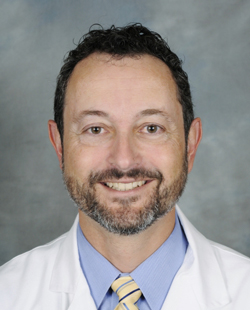
Paul A. Manner, M.D.
Professor
Specialties:
Arthritis
Hip and Knee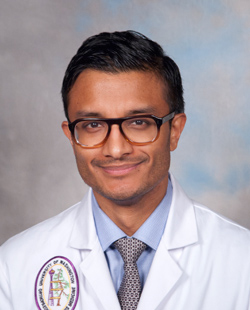
Navin D. Fernando, M.D., FRCSC
Assistant Professor
Specialties: Arthritis
Hip and Knee
Howard Chansky, M.D.
Professor and Chair
Specialties: Arthritis
Hip and Knee
Oncology
William D. Lack, M.D.
Assistant Professor
Specialties:
Fractures and Trauma
Hip and Knee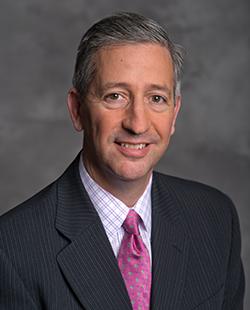
Seth S. Leopold, M.D.
Professor
Editor-in-Chief, Clinical Orthopaedics and Related Research
Specialties:
Arthritis
Hip and KneeRotation Locations
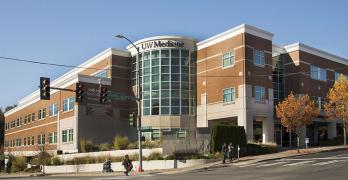
Hip & Knee Center at Meridian Pavilion
11011 Meridian Ave N., Seattle, WA 98133Medical Specialties
- Hip & Knee Center
- Sports Medicine & Orthopedic Surgery
- Physical Examination of the Hip:
Shoulder and Elbow (ORTHP 687)
Course Number: ORTHP 687 Credits: 8 Offered: 4 weeks full-time Grading Notes: High Pass/Honors eligible EValue Status: Availability pre-entered; searchable in EValue Prerequisite: Completion of required third year Surgery clerkship Clerkship Coordinator: Jessica Jin, 206-744-4927, orthomsp@uw.edu Clerkship site(s): Seattle, WA: UW Medical Center Northwest Hospital Permission Required: No Surgical Selective: Yes Goals and Objectives:
- Obtain a basic, relevant knowledge of shoulder and elbow anatomy and pathology. This may be achieved by:
- reviewing Dr. Douglas Harryman's videos entitled, Safe and Effective Surgical Approaches to the Shoulder and Mechanisms of Glenohumeral Stability
- Evaluate and develop management plans for patients with shoulder and elbow problems by: conducting a thorough/efficient clinical history and physical examination.
- understanding the implications of systemic, emotional, and situational factors to the treatment of shoulder and elbow problems
- understanding the relationship of conditions of the neck and brachial plexus to symptoms and findings in the shoulder and elbow area
- understanding the indications for and interpretation of standard radiographs, CTs, MRIs, and sonograms of the shoulder and elbow
- understanding the relevant basic science and anatomy (gross and arthroscopic) related to the shoulder and elbow
- presenting basic treatment options, including home exercises, medications and surgery along with the alternatives and risks of each
- understanding the diagnosis and treatment for a core group of shoulder problems including:
- stability (atraumatic and traumatic instability)
- stiffness (localized, global, idiopathic, diabetic, post-traumatic, and post-surgical)
- smoothness (OA, RA, AVN, capsulorrhaphy arthropathy, cuff tear arthropathy, posttraumatic DJD, snapping scapula, and subacromial roughness)
- strength (rotator cuff tears and nerve lesions)
- biceps tendonitis
- AC joint problems (DJD and separation)
- trauma (clavicular, scapular, and proximal humeral fractures)
- understanding the diagnosis and treatment for a core group of elbow problems including:
- instability (acute and chronic ligament insufficiency)
- stiffness (post-traumatic, post-surgical, heterotopic ossification)
- smoothness (OA, RA, and post-traumatic DJD)
- strength (distal biceps ruptures and nerve lesions)
- medial and lateral epicondylitis
- olecranon bursitis
- loose bodies
- entrapment neuropathies
- trauma (distal humerus, radial head, olecranon, coronoid fractures)
- understanding appropriate rehabilitation protocols and schedules for various shoulder and elbow problems, both conservative and post-operative
Faculty
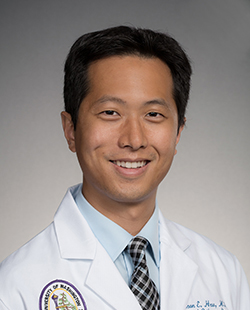
Jason E. Hsu, M.D.
Assistant Professor
Specialties:
Shoulder and Elbow
Albert O. Gee, MD
Associate Professor
Chief, Orthopaedic Surgery & Sports Medicine, University of Washington Medical Center
Team Physician, Husky Athletics
Specialties: Hip and Knee
Shoulder and Elbow
Sports Medicine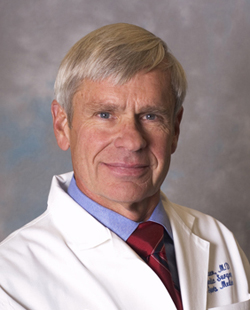
Frederick A. Matsen III, M.D.
Professor
Specialties:
Arthritis
Shoulder and Elbow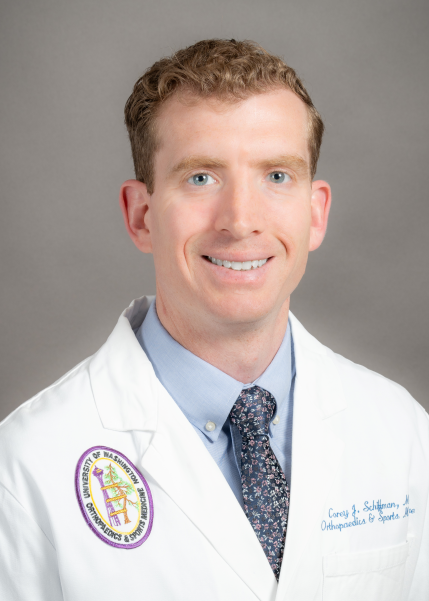
Corey Schiffman, M.D.
Assistant Professor
Specialties:
Shoulder and ElbowRotation Locations
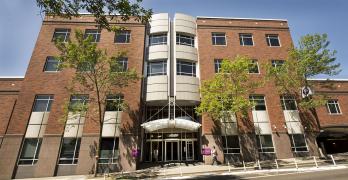
Hand, Elbow & Shoulder Center at UW Medical Center - Roosevelt
4245 Roosevelt Way NE, Seattle, WA 98105
Hand, Elbow and Shoulder Center at Meridian Pavilion
11011 Meridian Ave N., Seattle, WA 98133- Obtain a basic, relevant knowledge of shoulder and elbow anatomy and pathology. This may be achieved by:
Special and Away Electives (ORTHP 697 & 699)
Orthopaedics Away Elective (ORTHP 697)
Course Number: ORTHP 697 Credits: Variable, max. 8 Offered: Full-time Grading Notes: High Pass/Honors eligible EValue Status: Availability is set up after permission is granted; will not necessarily appear in EValue Prerequisite: Permission from department. MS4 students only. +
2 month application processCompliance Notes: Variable based on away clerkship site Clerkship Coordinator: Jessica Jin, 206-744-4927, orthomsp@uw.edu Clerkship site(s): Various outside WWAMI region Permission Required: Yes Surgical Selective: No For students interested in participating in an away rotation outside the WWAMI region at an institution or facility, also known as a special assignment elective. Students will need to submit a special assignment elective application to the department clerkship coordinator for review before registration eligibility at least two months prior to the clerkship start date. For the application and more information please the UWSOM Special Assignment Electives page.
At least two (2) months prior to the clerkship start date, students must contact the clerkship coordinator to arrange a meeting with the department’s director prior to finalizing the away clerkship rotation. Please note that students are ultimately responsible for the accuracy of the information given for evaluation and final grade submittal. The clerkship coordinator will notify the UWSOM Curriculum and Registration offices upon approval of the away clerkship rotation.
Evaluations: Departmental evaluations are required to be completed by clerkship preceptors and returned back to the clerkship coordinator no later than 4 weeks after the rotation date.
WWAMI Orthopaedic Special Assignment Elective (ORTHP 699)
Course Number: ORTHP 699 Credits: Variable, max. 8 Offered: Full-time Grading Notes: High Pass/Honors eligible EValue Status: Availability is set up after permission is granted; will not necessarily appear in EValue Prerequisite: Permission from department. MS4 students only. +
2 month application processCompliance Notes: Variable based on site location; please contact clerkship coordinator. Clerkship Coordinator: Jessica Jin, 206-744-4927, orthomsp@uw.edu Clerkship site(s): Various within WWAMI Permission Required: Yes Surgical Selective: No For students interested in participating in an away rotation within the WWAMI region at an institution or facility, also known as a special assignment elective. Students will need to submit a special assignment elective application to the department clerkship coordinator for review before registration eligibility at least two months prior to the clerkship start date. For the application and more information please the UWSOM Special Assignment Electives page.
At least two (2) months prior to the clerkship start date, students must contact the clerkship coordinator to arrange a meeting with the department’s director prior to finalizing the away clerkship rotation. Please note that students are ultimately responsible for the accuracy of the information given for evaluation and final grade submittal. The clerkship coordinator will notify the UWSOM Curriculum and Registration offices upon approval of the away clerkship rotation.
Evaluations: Departmental evaluations are required to be completed by clerkship preceptors and returned back to the clerkship coordinator no later than 4 weeks after the rotation date.
Our Clerkship Sites
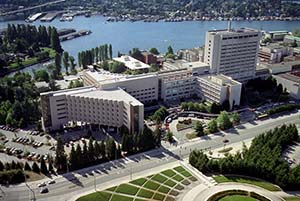
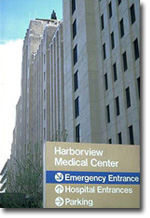

Seattle VA Medical Center
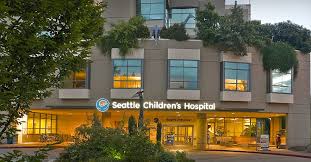
DUTY HOUR POLICY
All rotations comply with the UW institutional duty hours policy and ACGME requirements of the “80 hour work week”. This includes work hours, time between shifts, days away from hospital activities and total work hours.
Clerkship Evaluation
All clerkship evaluations are completed through eValue. PDF downloadable copy: